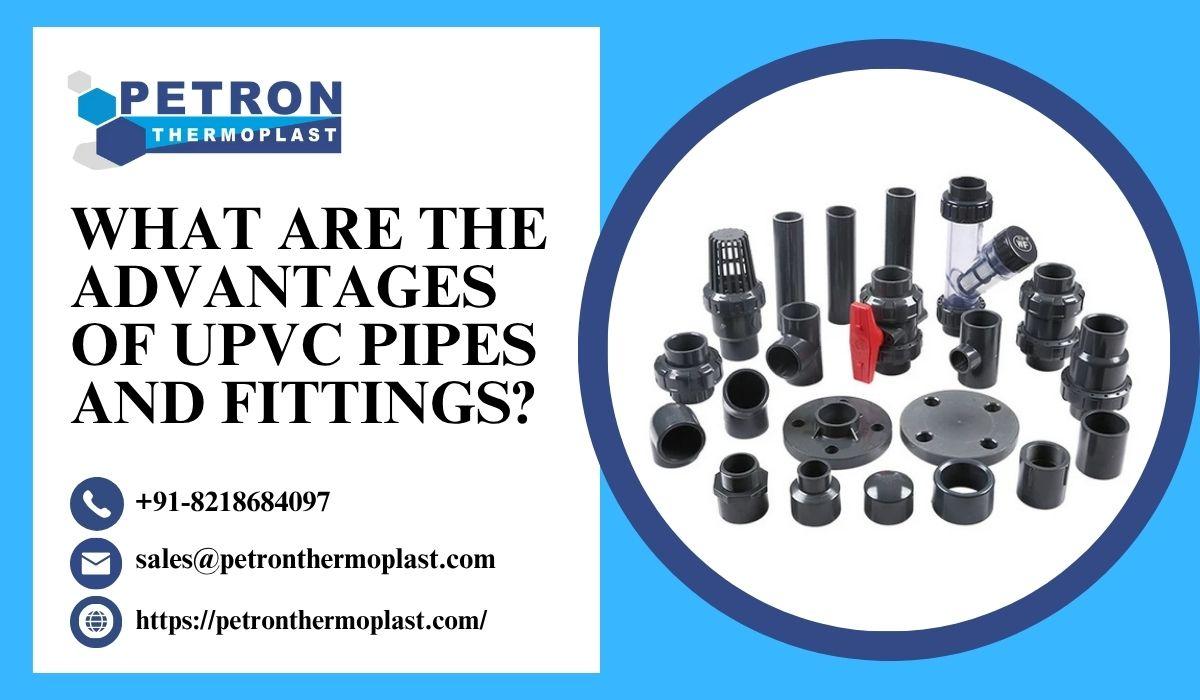In the world of piping systems, choosing the right material plays a crucial role in ensuring efficiency, longevity, and cost-effectiveness. Among various piping solutions available today, Unplasticized Polyvinyl Chloride (UPVC) stands out as one of the most preferred materials for industrial, commercial, and residential piping applications. Known for its strength, resistance to chemicals, and affordability, UPVC pipes and fittings have revolutionized the way fluid handling systems are designed.
In this blog, we’ll explore the many advantages of UPVC pipe and fittings and understand why they are an ideal choice for a wide range of applications.
What is UPVC?
UPVC stands for Unplasticized Polyvinyl Chloride, which is a type of rigid PVC that does not include plasticizers. This makes it stronger and more durable compared to conventional PVC. The lack of plasticizers enhances its mechanical strength and makes it highly suitable for pressurized water systems, chemical handling, and drainage solutions.
Top Advantages of UPVC Pipe and Fittings
- Excellent Chemical Resistance
UPVC is highly resistant to most acids, alkalis, and chemical solvents. This makes it an excellent choice for chemical industries, water treatment plants, and industrial processing units where exposure to corrosive substances is common.
Unlike metal pipes, UPVC doesn’t corrode or degrade when exposed to harsh chemicals, ensuring longer life and minimal maintenance.
- Corrosion-Free and Rustproof
One of the most significant advantages of UPVC pipes is their non-corrosive nature. They are not affected by moisture, air, or salt, which eliminates the risk of rust formation. This makes UPVC pipes ideal for water distribution, plumbing, and irrigation systems, especially in areas with saline or aggressive water.
- Durability and Long Service Life
UPVC pipe and fittings are designed to last. Their strong structure and rigid form provide exceptional resistance to wear, abrasion, and environmental impacts. With proper installation and usage, UPVC pipes can last more than 50 years, even in demanding environments.
- Smooth Internal Surface
The internal surface of UPVC pipes is extremely smooth, reducing frictional losses and pressure drops during fluid transport. This enhances the overall efficiency of the system and ensures consistent flow even over long distances.
- Lightweight and Easy to Install
Compared to metal pipes, UPVC pipes are lightweight, making them easy to transport, handle, and install. Their simple joining methods – such as solvent welding – allow for faster installation with reduced labor and machinery costs.
This makes UPVC an economical solution for both small-scale and large-scale plumbing projects.
- High Mechanical Strength
Despite being lightweight, UPVC exhibits excellent tensile and impact strength. It can withstand external pressure and internal water pressure effectively, which is essential for pressurized systems.
Its rigidity also ensures that the pipes and fittings retain their shape and integrity under load, reducing the chance of deformation or collapse.
- Low Maintenance
Once installed, UPVC pipe systems require very little maintenance. Their non-reactive and smooth surfaces prevent scaling, fouling, and bacterial growth, making them hygienic and ideal for potable water supply systems.
Maintenance costs are drastically reduced over the life of the installation compared to metal piping.
- UV and Weather Resistant
UPVC has excellent resistance to sunlight (UV rays) and weather conditions, which means it does not degrade or lose strength when used outdoors. This makes it ideal for exposed installations such as agricultural irrigation, outdoor drainage, and rooftop plumbing.
- Cost-Effective
Affordability is another major benefit of UPVC piping systems. They offer a lower overall installation and maintenance cost compared to alternatives like metal or concrete pipes. Additionally, their long service life translates into better return on investment (ROI) over time.
- Eco-Friendly
UPVC pipes are recyclable and require less energy to manufacture compared to metal or concrete. Moreover, their leak-proof nature prevents water wastage, contributing to sustainable water management.
- Hygienic for Drinking Water
UPVC does not allow bacterial growth and is non-toxic, making it safe for transporting drinking water. It does not alter the taste, odor, or color of the water. Hence, UPVC pipes are widely used in municipal water supply systems and residential plumbing.
Common Industrial Applications of UPVC Pipe and Fittings
Thanks to its superior properties, UPVC pipe and fittings are used across multiple industries, including:
- Water supply systems
- Chemical processing plants
- Wastewater treatment
- Irrigation systems
- HVAC piping
- Swimming pools
- Food and beverage processing
- Pharmaceutical and laboratories
Types of UPVC Fittings Available
UPVC piping systems are supported by a wide variety of fittings to accommodate complex layouts and needs. These include:
- Elbows (90°/45°)
- Tees and Cross Tees
- Couplers and Reducers
- Unions and Flanges
- Valves (Ball Valves, Check Valves, Butterfly Valves)
- End Caps, Plugs, and Bushes
These fittings ensure tight, leak-free joints and allow for easy modification or expansion of the system.
Final Thoughts
UPVC pipe and fittings offer a perfect blend of performance, durability, and economy. Whether you're designing a plumbing network for a commercial building or setting up a large industrial fluid handling system, UPVC provides a reliable and long-lasting solution.With unmatched resistance to corrosion, easy installation, low maintenance, and cost-efficiency, UPVC has become a preferred choice for piping systems across industries. For businesses and industries looking for a safe, dependable, and affordable piping material – UPVC is the smart choice.



